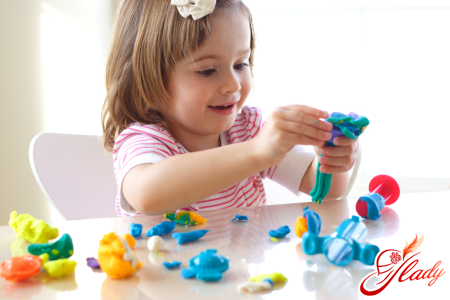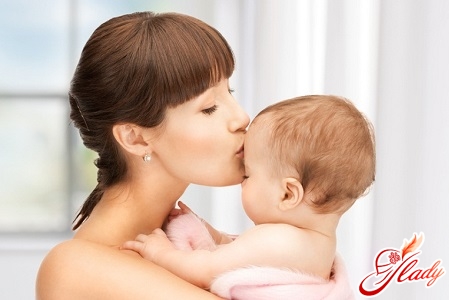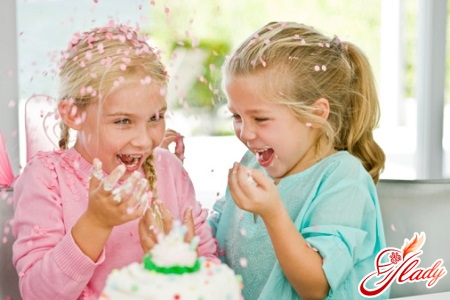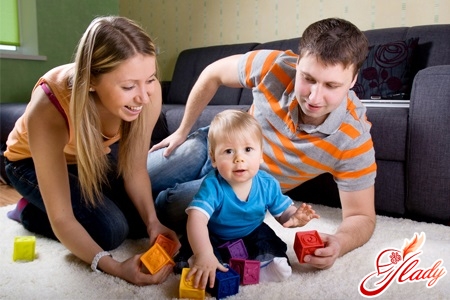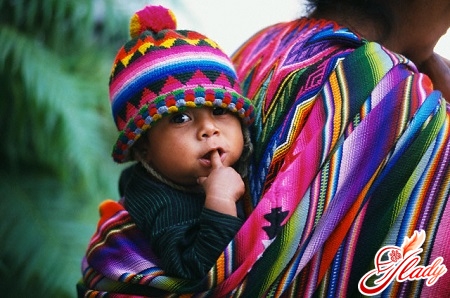 Your pet allows itself to show aggressionattitude towards the baby, as a result of which the child is afraid of dogs? However, often the parents are to blame for the fact that a child was bitten by a dog. It is not enough to simply decide what kind of dog to get for the child. Firstly, it is necessary to explain to the child how to behave with a dog. It is unacceptable to interfere with the dog during eating or sleeping, to hurt the dog. Secondly, if a dog has bitten a child, carefully study all the circumstances of the incident. Figure out what preceded it? Very often, parents confuse bites with blows with teeth. As a rule, before biting a child, a dog repeatedly warns him about the undesirability of any actions. When biting a child, most often the animal does not pursue the goal of harming him, but simply stops an undesirable action. However, this should not become a rule. If a dog has bitten a child once, it is necessary to strictly punish the animal, and explain to the child the unacceptability of such behavior. In the event that the dog attacks the child again, alas, you will have to part with it. If you don't do this, something irreparable may happen. Don't tempt fate and play Russian roulette. Dogs that love children will never allow themselves to show aggression towards them. If a stray dog attacks your child, your actions should be as follows:
Your pet allows itself to show aggressionattitude towards the baby, as a result of which the child is afraid of dogs? However, often the parents are to blame for the fact that a child was bitten by a dog. It is not enough to simply decide what kind of dog to get for the child. Firstly, it is necessary to explain to the child how to behave with a dog. It is unacceptable to interfere with the dog during eating or sleeping, to hurt the dog. Secondly, if a dog has bitten a child, carefully study all the circumstances of the incident. Figure out what preceded it? Very often, parents confuse bites with blows with teeth. As a rule, before biting a child, a dog repeatedly warns him about the undesirability of any actions. When biting a child, most often the animal does not pursue the goal of harming him, but simply stops an undesirable action. However, this should not become a rule. If a dog has bitten a child once, it is necessary to strictly punish the animal, and explain to the child the unacceptability of such behavior. In the event that the dog attacks the child again, alas, you will have to part with it. If you don't do this, something irreparable may happen. Don't tempt fate and play Russian roulette. Dogs that love children will never allow themselves to show aggression towards them. If a stray dog attacks your child, your actions should be as follows:
- Drive away the dog from the child. Do not try to drag the dog or the baby, it can lead to deep ragged wounds. The dog can be driven away with a loud cry or with another sharp sound. In addition, do not hesitate to ask for help from passers-by, although most often people without interventions interfere with the situation.
- Try to calm the child and calm yourself, in order to soberly assess the consequences of how much the child bitten the dog.
- In any case, if there is even a slight damage to the skin, you need to see a doctor, since there is a risk of getting infected with rabies.
A dog bite can result inas a result, the child will avoid dogs. Such childhood psychological traumas can affect even in adulthood. That is why, if your child is terrified of dogs and cannot overcome this fear on his own, you need to consult a child psychologist. However, most often, if the injuries were minor, the child quickly forgets about them and, after some time, begins to want a dog, like all his peers.
The child asks the dog
"I want a dog!"Sooner or later, all parents face this request. Some buy a four-legged friend without thinking, while others categorically refuse. If you are reading these lines, it means that you are still thinking about getting a dog. However, in order for a dog to bring your family only boundless joy, you should not be guided by a momentary impulse and immediately buy a dog. It is necessary to carefully study all the nuances and possible difficulties that may arise in connection with the appearance of a shaggy friend. So, your child wants a dog. The first thing that parents should understand is that even if your child is already a completely independent person of 7-10 years old, who gives you solemn promises to take care of the dog, raising the dog, feeding, bathing, walking in any weather and time, including the morning of the first of January, will fall solely on your shoulders. It is especially necessary to carefully weigh the decision if there is a baby in the family. After all, both the dog and the baby require care and attention, which takes a lot of time and effort. And if the baby and the dog are entrusted to the care of one mother, she will be very tired.
If the dog still does
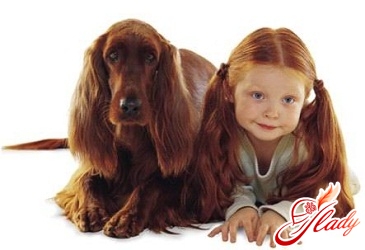 If you agree to this, you are faced withthe second, no less important question: what kind of dog to buy for a child? When choosing a dog, it is very important to consider that the dog will be in contact with all family members, and not just with its little owner. Mom, dad, younger brother or sister, elderly grandmother - all of them will become beloved family members for the dog. That is why, when deciding what kind of dog to choose for a child, it is necessary to consider not only that the child really wants a dog of a certain breed, but also to take into account the opinions of all the people living together. In the future, this will help to avoid many problems and misunderstandings. Of course, it is very important what kind of dog to get for a child. The dog must have a good psyche and a kind disposition, which is why it is important to study information about dog breeds that love children. Below is advice from a specialist - a dog handler on how to choose a dog for a child so that both the dog itself and all family members are comfortable.
If you agree to this, you are faced withthe second, no less important question: what kind of dog to buy for a child? When choosing a dog, it is very important to consider that the dog will be in contact with all family members, and not just with its little owner. Mom, dad, younger brother or sister, elderly grandmother - all of them will become beloved family members for the dog. That is why, when deciding what kind of dog to choose for a child, it is necessary to consider not only that the child really wants a dog of a certain breed, but also to take into account the opinions of all the people living together. In the future, this will help to avoid many problems and misunderstandings. Of course, it is very important what kind of dog to get for a child. The dog must have a good psyche and a kind disposition, which is why it is important to study information about dog breeds that love children. Below is advice from a specialist - a dog handler on how to choose a dog for a child so that both the dog itself and all family members are comfortable.
- There is a very common belief thatA small dog for a child will be the best option. This is a fundamentally wrong opinion, refuted by a number of objective reasons. If your child is under 4 - 5 years old, buying a small dog for a child can turn into a big headache for the whole family. Small dog breeds for children require care no less than large ones. Often, small dogs have a lot of health problems. Such a dog itself claims the title of the favorite child in the family all its life and is not always ready to put up with second roles. In addition, a small representative of the canine world is unlikely to become a full-fledged companion during active physical games, since due to its size it is constantly at risk of physical injury. A large dog will not even notice that the young adored owner accidentally stepped on its paw, and for a small dog this can turn into a fracture.
- Analyzing what kind of dog is suitable for children,one can not help but mention the temperament of the dog. A dog for a child is, first of all, a companion for games, so the temperament and the child and the dog should fit together. If your child loves long mobile walks, the labrador will become his faithful companion, but if the child is a homely, the labrador quickly gets bored and, getting rid of unnecessary unrealized energy, can begin to mess around at home: gnawing shoes or spoiling furniture.
- In addition, talking about which dog is betterit is suitable for children, it is necessary to talk separately about such a group of dogs, as service and hunting dogs. For example, a sheep-dog can not be called an aggressive dog, but unless you are going to train yourself, do not buy it as a dog for a child. The same applies to hunting dogs that are idle, quickly bored and begin to dig holes in your carpet.
- Deciding which dog to choose forchild, you should also focus on the financial capabilities of your family. Fashion trends relate not only to clothing or music, but also breeds of dogs. If the breed is at the peak of fashion, the price for it can reach sky highs. Do not give in to the temptation to buy a puppy on the market and without a pedigree, but several times cheaper. It can turn into a real tragedy. But more details will be given below.
"He does not bark, he does not bite ..."
First of all, you need to decide on the breedsupposed dog. The question of which dog breeds love children is very controversial. German Shepherd lovers claim that the shepherd is the best friend of a child, and owners of spaniels, for example, say the same about their breed. However, is it possible to say whether there is the best dog breed for children? Of course, it is. Based on numerous long-term observations of which dogs love children more than others, cynologists have identified breeds that are suitable for children. Below are the main advantages and possible disadvantages that the best dog breeds, optimal for children, have. Representatives of the top three listed below are positioned as the best dogs for children.
- Collie. This dog is boundlessly loyal and devoted to its masters, loyal to children, rather unpretentious in content. However, the collie is a long-haired dog, so it needs a daily comb. In addition, the collie is quite unfriendly and distrustful to outsiders, even if he sees them regularly. This should be taken into account for families in which the arrival of guests is quite frequent. Otherwise, the dog that grows behind a closed door can become a strong irritant.
- Labrador. Adores everyone around, including children. Inefficient activity is both a virtue and a disadvantage. If you are not ready to spend a few hours a day walking, be prepared for the fact that your home will be turned into a gaming ground. In addition, during the walk and during games with the child at home, one must constantly be on the alert - while playing, the Labrador does not show special tact and caution, so it is possible to systematically knock the child off his feet, especially if the child is small.
- St. Bernard. Imposing powerful philosopher. He does not have to worry about cats, or bark cars. On a walk, he will march majestically next to you, without even turning his head to the side. It is very interesting to observe the St. Bernard during a walk with young children. While the child is playing calmly, a deceptive sensation may arise that St. Bernard is asleep. However, this is far from the case, it's worth the little sign of anxiety for the baby, and St. Bernard will immediately be there. In addition, St. Bernard will never allow your child to fall behind you or step aside. He will immediately be turned on the right course by tactful cautious nudging.
The history of one family or "so that's what you are, St. Bernard!"
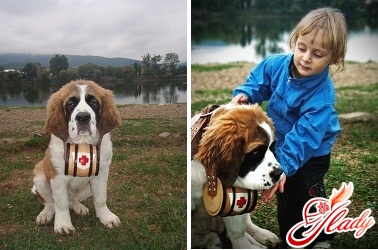 Having become interested in the St. Bernard breed, weasked a mother of two children, who also has two St. Bernards, to tell about the peculiarities of the relationship between St. Bernards and children. “The first St. Bernard appeared in our house even before the birth of our eldest son. Frankly speaking, I was very worried that problems could arise. After all, a newborn child and a dog cannot always peacefully coexist. I have repeatedly heard complaints that the dog begins to show a feeling of jealousy and protest against the appearance of another family member. For example, to spoil the baby's or the owners' things, expressing protest. In addition, even if there is no jealousy, problems of a different nature can arise: for example, the barking of a dog can wake up the baby. However, my fears turned out to be absolutely in vain, when a newborn child appeared in our family, our dog turned into a real nanny. Her permanent place became a place near the baby's crib, not a single grunt of the baby escaped the dog's attention. If my son woke up and I was not in the room at the time, the dog would immediately run up to me and push me towards the crib. When my son started growing up, Alya (the dog) became a shock absorber between his bottom and the floor, a walker (my son held on to her fur while walking), a playmate, and a caring but at the same time strict nanny who closely watched his every step. Soon a daughter was born, and again there were no problems. The dog became a nanny for two children. But, as they say, "the only thing better than a St. Bernard is two St. Bernards," and a St. Bernard puppy appeared in our family. And here I faced the problem of "a dog and a small child." If the older St. Bernard steadfastly endured all the "manifestations of love" in the form of ear pulling and other delights, then the puppy simply began to "cry," because, in essence, he is the same baby. I had to explain to my daughter how to treat a dog, because a small dog should not become just a toy for a child. By the way, a dog can become a great example for a small child of how to treat weaker creatures. In addition, a child develops and senses responsibility if you regularly involve the child in caring for the dog. However, this should happen in a playful way, otherwise you can permanently discourage the desire to help you. To summarize, I can say: for our family, the answer to the question of what kind of dog to buy for a child is unambiguous. A St. Bernard, of course. After all, a St. Bernard is the best dog for children. Finally, I would like to give advice to parents. When choosing a dog for a child, it is not enough to take into account what breeds of dogs children love. It is very important to learn about the needs and care of the chosen breed and realistically assess your strengths."
Having become interested in the St. Bernard breed, weasked a mother of two children, who also has two St. Bernards, to tell about the peculiarities of the relationship between St. Bernards and children. “The first St. Bernard appeared in our house even before the birth of our eldest son. Frankly speaking, I was very worried that problems could arise. After all, a newborn child and a dog cannot always peacefully coexist. I have repeatedly heard complaints that the dog begins to show a feeling of jealousy and protest against the appearance of another family member. For example, to spoil the baby's or the owners' things, expressing protest. In addition, even if there is no jealousy, problems of a different nature can arise: for example, the barking of a dog can wake up the baby. However, my fears turned out to be absolutely in vain, when a newborn child appeared in our family, our dog turned into a real nanny. Her permanent place became a place near the baby's crib, not a single grunt of the baby escaped the dog's attention. If my son woke up and I was not in the room at the time, the dog would immediately run up to me and push me towards the crib. When my son started growing up, Alya (the dog) became a shock absorber between his bottom and the floor, a walker (my son held on to her fur while walking), a playmate, and a caring but at the same time strict nanny who closely watched his every step. Soon a daughter was born, and again there were no problems. The dog became a nanny for two children. But, as they say, "the only thing better than a St. Bernard is two St. Bernards," and a St. Bernard puppy appeared in our family. And here I faced the problem of "a dog and a small child." If the older St. Bernard steadfastly endured all the "manifestations of love" in the form of ear pulling and other delights, then the puppy simply began to "cry," because, in essence, he is the same baby. I had to explain to my daughter how to treat a dog, because a small dog should not become just a toy for a child. By the way, a dog can become a great example for a small child of how to treat weaker creatures. In addition, a child develops and senses responsibility if you regularly involve the child in caring for the dog. However, this should happen in a playful way, otherwise you can permanently discourage the desire to help you. To summarize, I can say: for our family, the answer to the question of what kind of dog to buy for a child is unambiguous. A St. Bernard, of course. After all, a St. Bernard is the best dog for children. Finally, I would like to give advice to parents. When choosing a dog for a child, it is not enough to take into account what breeds of dogs children love. It is very important to learn about the needs and care of the chosen breed and realistically assess your strengths."
How to choose the right puppy?
So, finally the choice is made, and youyou are going to meet your dream, that is, to get a puppy. The first thing you should pay attention to is who you are buying the dog from. You should not buy a puppy from a reseller, most often the documents for such dogs are fake, and the prices are much higher. It is much safer to buy a dog from a specialized nursery. As a rule, you will be given the opportunity to see the mother of the puppies, his brothers and sisters, and will be given all the necessary recommendations for care and education. Most nurseries will be happy to help you raise the puppy you bought from them. Pay attention to how active the puppy is, the condition of his fur and ears. The puppy should be active and healthy, you should not take the baby if his condition does not inspire confidence. Some people believe that a pedigree is only necessary for participation in dog shows. However, this is a wrong opinion. Surely everyone has heard of cases when a child was bitten by a domestic dog and no one wants to allow such a situation. Having a pedigree for an animal significantly increases the guarantee that the dog you buy will have a stable psyche. We hope that the information on how to choose the right dog for a child will help you choose the dog that loves children and will become a loyal friend for your entire family. After all, a dog is wool on carpets, on clothes, drool on new trousers and dirty paws on a light sofa. And most importantly, it is a whole sea of selfless dedication, boundless love and eternal devotion! We recommend reading:




